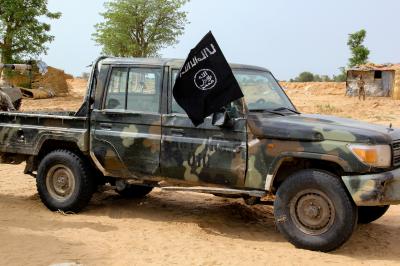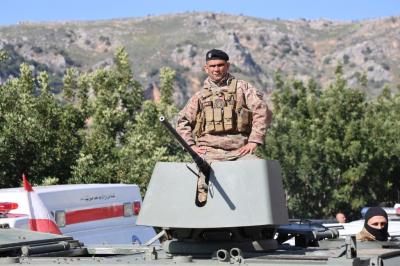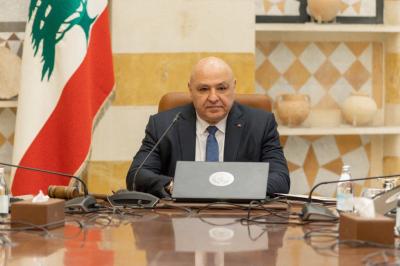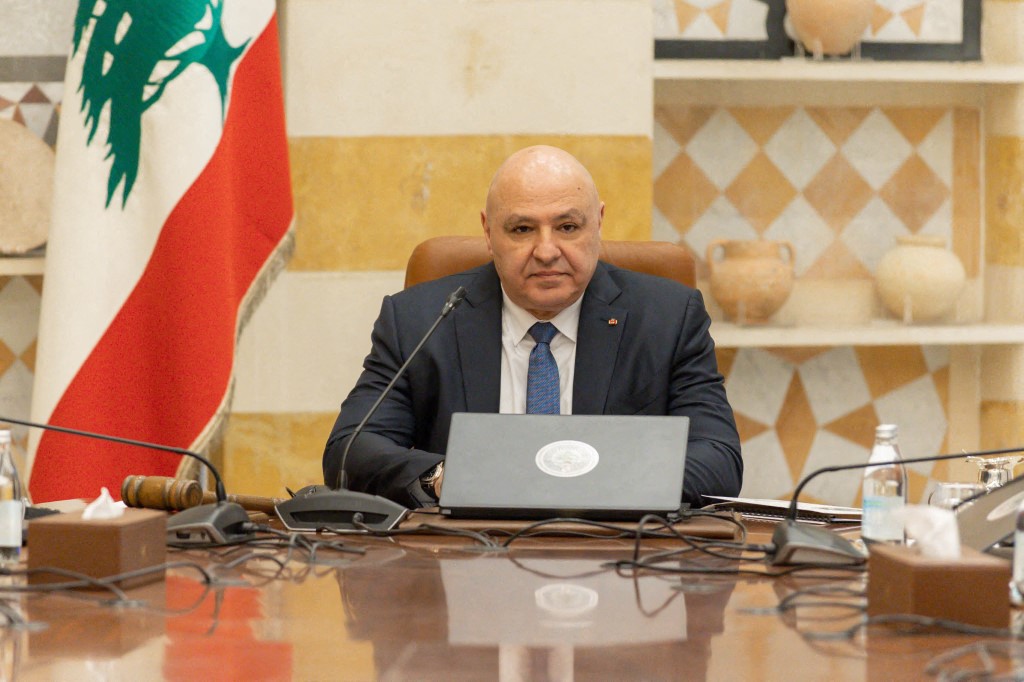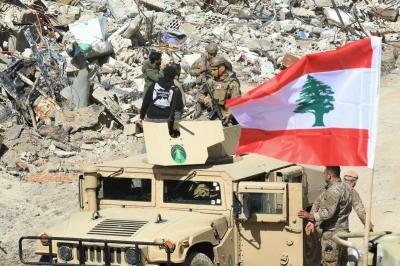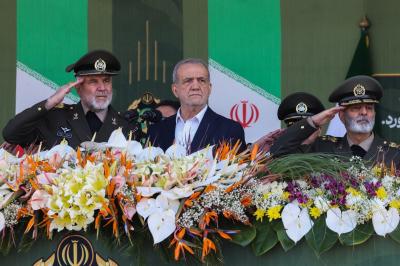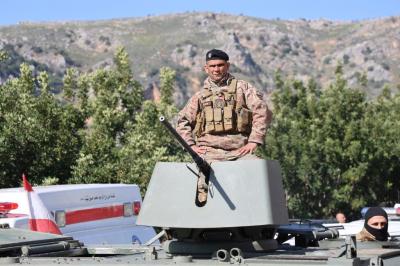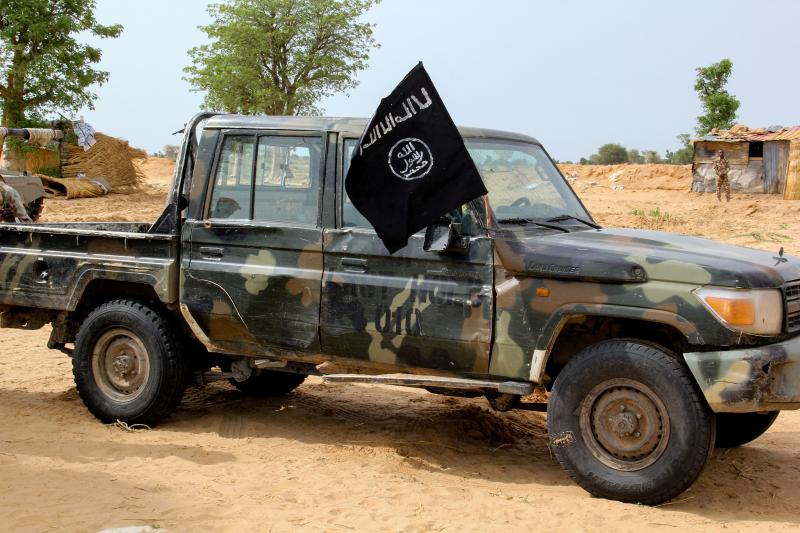On January 9, 2025, newly elected President Joseph Aoun laid out a clear roadmap for his term in office. In his inaugural speech, he hoisted the banner of the state's exclusive constitutional right to bear arms and exert sovereignty across all Lebanese territory. As Commander-in-Chief of the Armed Forces and head of the Higher Defense Council, he called for "a comprehensive defense policy as part of a broader national security strategy—diplomatic, economic, and military—that empowers the Lebanese state—yes, the Lebanese state—to end Israeli occupation and repel its aggression from all Lebanese land."
At the time, all parties, including Hezbollah, responded with applause and praise. But as the presidency nears its first 100 days, the tone has shifted. What was once hailed with “Hosanna” now risks turning into calls for “Crucify him,” especially as Hezbollah raises the stakes and threatens to “cut off the hand” that touches its weapons.
On April 18, 2025, Hezbollah’s Deputy Secretary-General Sheikh Naim Qassem issued a warning: the group’s patience with diplomacy has limits. “We are not afraid of anything,” he declared. “Try us and you will see—at a time of our choosing. No one will be allowed to disarm Hezbollah or the resistance. This idea must be erased from your vocabulary.” He concluded: “We advise you not to play this game with us.”
Hezbollah is known for bending narratives to suit its agenda—even if it means contradicting itself. In his latest remarks, Qassem credited the group's front-line fighters with halting Israel’s advance and forcing it to the negotiating table on November 26, 2024. Yet, at the funerals of senior Hezbollah officials Sayyeds Nasrallah and Safieddine on February 23, 2025, he offered a different explanation: a ceasefire was accepted because the battle had no military or political prospects.
Then came MP Hassan Fadlallah’s statement on April 20, 2025, from Aitaroun, which appeared to outline Hezbollah’s roadmap to a defense strategy—but one riddled with landmines and preconditions. He listed four priorities that must be addressed before any discussion can take place:
- End of Israeli aggression in Lebanon.
- Complete withdrawal of Israeli forces from Lebanese territory.
- Release of all prisoners.
- Launch of a reconstruction process.
These positions reflect a domestic tug-of-war, amplified by external pressure and ongoing U.S.-Iran negotiations. But aren't these very demands—ending Israeli aggression and occupation—the rationale for initiating a national security strategy in the first place, as President Aoun proposed? As for the prisoners, Hezbollah seems to have forgotten that the ceasefire deal it approved never mentioned them. In contrast, President Aoun prioritized their release from the outset, and international efforts he led have already prompted Israel to free some detainees.
As for the reconstruction, Hezbollah’s insistence on rebuilding before discussing strategy seems more like a stalling tactic. Not only does reconstruction require time, but Hezbollah knows full well that Lebanon is incapable of funding it on its own. Access to international aid is contingent on one thing: resolving the issue of illegal arms, with Hezbollah’s arsenal at the forefront.
In a Palm Sunday appearance from Bkerke (the episcopal see of the Maronite Catholic Patriarchate of Antioch of the Maronite Church in Lebanon), President Aoun reiterated his commitment to his oath of office. Responding to Qassem’s defiant tone, he emphasized that the issue of Hezbollah’s weapons would not be debated on social media or in the press, but through responsible dialogue rooted in national interest and free from provocation.
President Aoun’s firm but wise stance leaves little room for ambiguity. "I did not speak of exclusive state arms for the sake of words,” he said. “I believe that the Lebanese people do not want war, cannot afford war, and refuse to speak its language. For this to become reality, the Lebanese Armed Forces must be the sole legitimate bearer of arms and defender of Lebanon’s sovereignty."
To those arguing the matter takes time, Aoun’s response was crystal clear: “No one should talk to me about timing or pressure. We spoke of arms control in my inaugural address, and we will implement it. The decision has been made, and we are awaiting the right conditions to do so.” This message directly challenges Hezbollah’s “four conditions” and underscores that the path forward is already set.
Meanwhile, Hezbollah and its allies attempt to manipulate this stance by seizing on recent discussions by the Lebanese Forces ministers, who proposed a six-month deadline to address the arms issue—mirroring the post-Taif Agreement roadmap that disarmed all militias in 1991, except Hezbollah. Back then, disarmament began in central Beirut and expanded in phases nationwide. Thus, the Forces’ proposal isn’t unprecedented but a reminder of a commitment left unfulfilled.
"Beloved people, we have reached the hour of truth," President Aoun declared in his inaugural address. That hour is now striking. Hezbollah cannot assume the president’s patience is infinite. He will not let six years pass without fulfilling his oath, especially not to accommodate a militia clinging to its weapons. Regionally and internationally, the countdown has begun for Iran’s proxies—and the game of illegal arms is reaching its inevitable end. The “appropriate conditions” President Aoun awaits are on the horizon.


